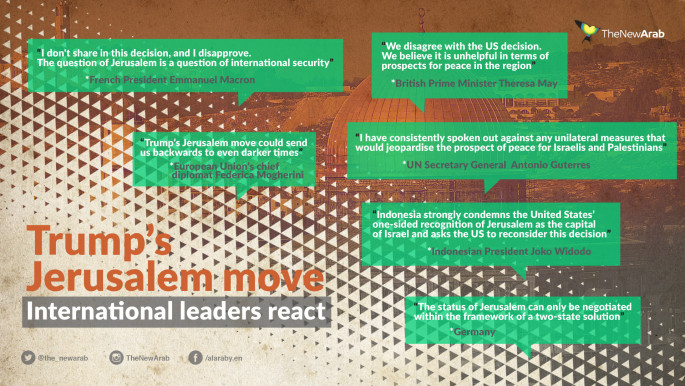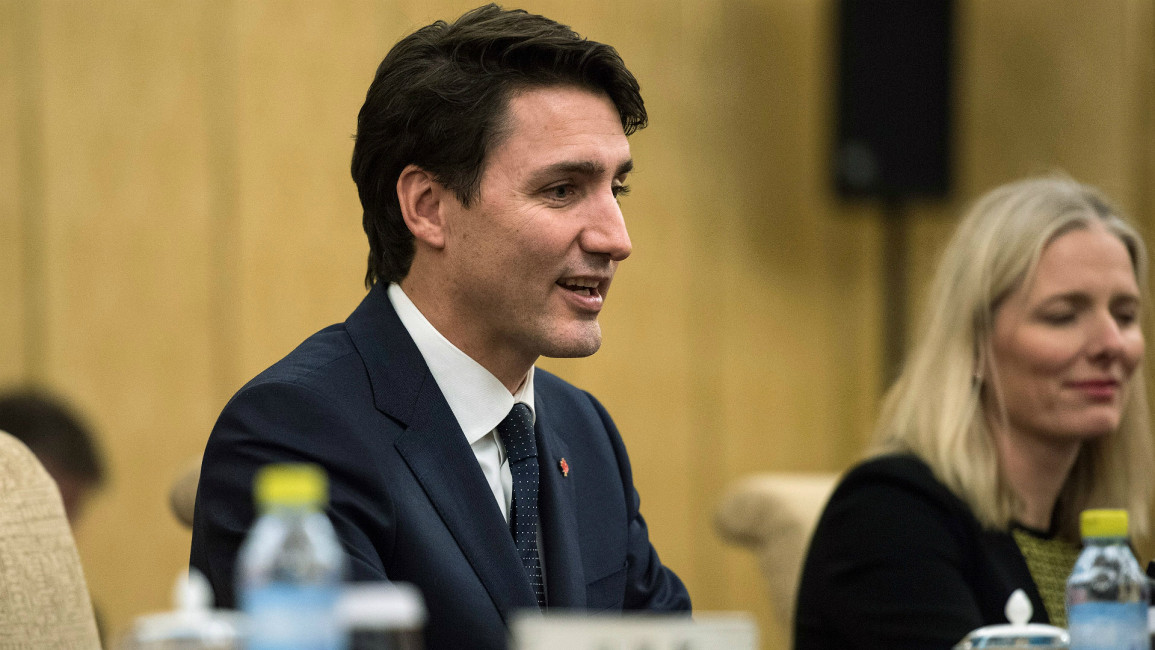Canada embassy to remain in Tel Aviv, says Prime Minister Justin Trudeau
"We will not be moving Canada's embassy from Tel Aviv," Trudeau said during a visit to Guangzhou, China, broadcast nationally in Canada.
Trudeau was reacting to US President Donald Trump's recognition of Jerusalem, which is claimed by both Israelis and Palestinians, as Israel's capital.
On Wednesday, Foreign Affairs Minister Chrystia Freeland reaffirmed Canada's longheld position that "the status of Jerusalem can be resolved only as part of a general settlement of the Palestinian-Israeli dispute."
"We are strongly committed to the goal of a comprehensive, just and lasting peace in the Middle East, including the creation of a Palestinian state living side-by-side in peace and security with Israel," she said.
Trump has caused outrage and concern after dismissing warnings from Arab leaders, European allies and even the Pope by announcing the US' recognition of Jerusalem as Israel's capital on Wednesday.
"It is time to officially recognise Jerusalem as the capital of Israel," Trump added, saying that he was fulfilling a promise that previous presidents have not honoured.
He justified his decision, saying: "Today Jerusalem is the seat of the modern Israeli government, the home of the Knesset and the Israeli Supreme Court. It is the headquarters of many government ministries."
But the move immediately caused a stir with US allies who condemned the move, and sparked anger among Palestinians and their supporters.
 |
|
Saudi Arabia blasted the move as "unjustified and irresponsible", and said it goes against the "historical and permanent rights of the Palestinian people."
Palestinian President Mahmoud Abbas said Trump's "deplorable and unacceptable" move meant that the United States was withdrawing as a sponsor of the peace process.
Through gritted teeth, Britain described the move as "unhelpful" and France called it "regrettable." Germany said plainly that it "does not support" Trump's decision.
Eight countries including Britain, France and Italy pressed for an emergency meeting of the UN Security Council in response to the move, which was set for Friday.
The leaders of Muslim nations meanwhile deployed ever-harsher rhetoric to describe Trump's decision.
| Read more: Goodbye Oslo? Dahlan, Abbas, Hamas react to Trump's Jerusalem move |
Turkey and Iran, both vying for regional influence, tried to give voice to the anger felt by many across the Muslim world.
Ankara called the decision "irresponsible" and illegal. Tehran said it would "provoke Muslims and inflame a new intifada."
The Palestine Liberation Organisation announced a strike in protest across the West Bank on Thursday, while Hamas – the Palestinian Islamist movement that runs the Gaza Strip – called for a "day of rage" on Friday. Hamas warned that Trump had opened "the gates of hell on US interests in the region.”
Trump's predecessors, from Bill Clinton to George Bush, had made the same promise, but quickly reneged upon taking office. But the 45th US president was determined to show his arrival in Washington spells the end of business as usual, suggesting his predecessors failed to act through lack of "courage."
Moving the embassy will probably take years to implement, but the repercussions of Trump's decision preceded even his announcement.
Agencies contributed to this report



